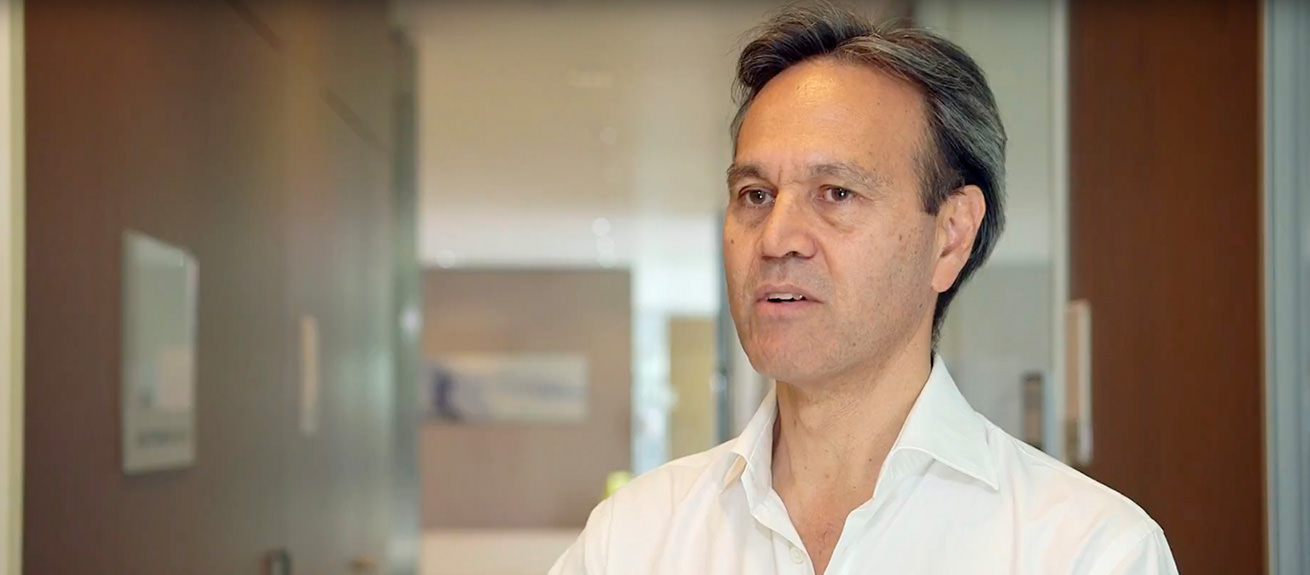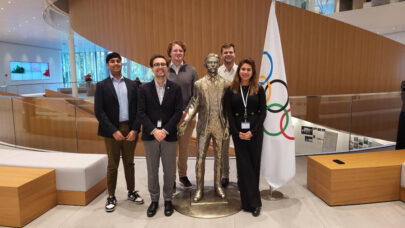IAN STEWART – MBA Class of 1987 – Co-Founder WiReD Magazine, Chairman WheelsPlusWings Foundation, IMD Executive-in-Residence
IMD: What does your current role entail?
IAN STEWART: I’m currently mostly an investor in small companies. I mentor here at IMD. I also help media consumer companies.
IMD: Why did you choose IMD for your MBA program?
IAN STEWART: When I came here in 1987 for the ’87-’88 year, I was looking around to change my life from being a full-time photographer, occasional writer and producer of books, and I’d accidentally started a publishing company to create my own books, so that gave me a sense of what business was like. And I wanted to be in Europe because the American programs were two years, and at age 30 I didn’t want to take off two years; I wanted it to be done in a year. And I looked at and visited all the schools in Europe at the time and even back then, IMD had the most holistic program. It was the one that gave you a general management context of the things you wanted to do.
I was basically a photographer. I’d created a small company but that was by accident. And as a photographer, there were so many things that I had no idea about: I knew nothing about marketing; I knew nothing about finance; I knew nothing about the context for business. So I wanted a place that gave me those learnings.
IMD: What were the highlights of the MBA for you?
IAN STEWART: Our class really gelled. We still have reunions now – every two years; it used to be every five – so we’re getting more frequent as we get older, and we get 75 percent of the class every single time. So it was a tight-knit group and that was lovely.
I love the fact that the range of professors was broad. I like the fact that the professors had done more than just teach; we had a range of people with experience in addition to teaching, and that was a real plus. We had sports teams that played against other schools and a lot of other fun activities. Overall, it was just one of the richest years of my life.
My twenties were set in a fairly limited sphere of people in the industry that I was in, and to be exposed to that many people from that many cultures with different viewpoints, so you could have four or five smart people in a room with the same problem and come up with completely different answers because their context was different. Understanding that was great for me.
IMD: How did the IMD MBA impact your career and your life?
IAN STEWART: Coming in I really was just a picture taker. I’d had some context – I’d grown up as the son of a financial and economic journalist, so I had people and met people that gave me some understanding of the world. But I really didn’t understand my place in it, the place of a company in it, the national context, or the international context. I didn’t understand the relationship between companies and marketing. So it was all about providing me a sense of how the world worked.
When I came in I knew a lot about a few things; when I walked out, I had a much better sense of how the world worked. I felt like I could take over the world at the end of the IMD MBA program. You feel like you understand where everything is, so it’s much easier to navigate. That’s really the biggest impact on me. I was able to make my way in the world – whereas before I was kind of winging it.
IMD: What does the scholarship initiative of the Lausanne Club mean to you?
IAN STEWART: I have spent much of my life in the developing world, mostly in East Asia but also in Africa, and I have seen the talent and drive evident in every part of those regions. I have also seen that these talents are not restricted to the affluent classes, and that a thirst for education and personal development exists at all levels of society. Our support for merit scholarships to the IMD MBA Program is, for me, an attempt to bring the best and brightest from the less advantaged segments of these societies to IMD; candidates who might not normally think that an MBA at one of the most prestigious business schools in the world was in reach. We give those candidates an opportunity to gain an understanding of how the whole world works, not just business, and not just their region. That helps shape future leadership in these regions, both business and societal, with global contexts for their decision making. In return, IMD and its other MBA candidates gain from adding new perspectives to an already diverse and deep set of perspectives and experiences within the program. This is why I supported this initiative of the IMD Alumni Club of Lausanne.




